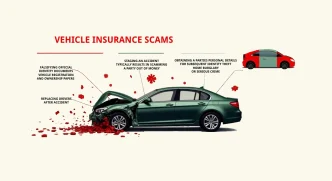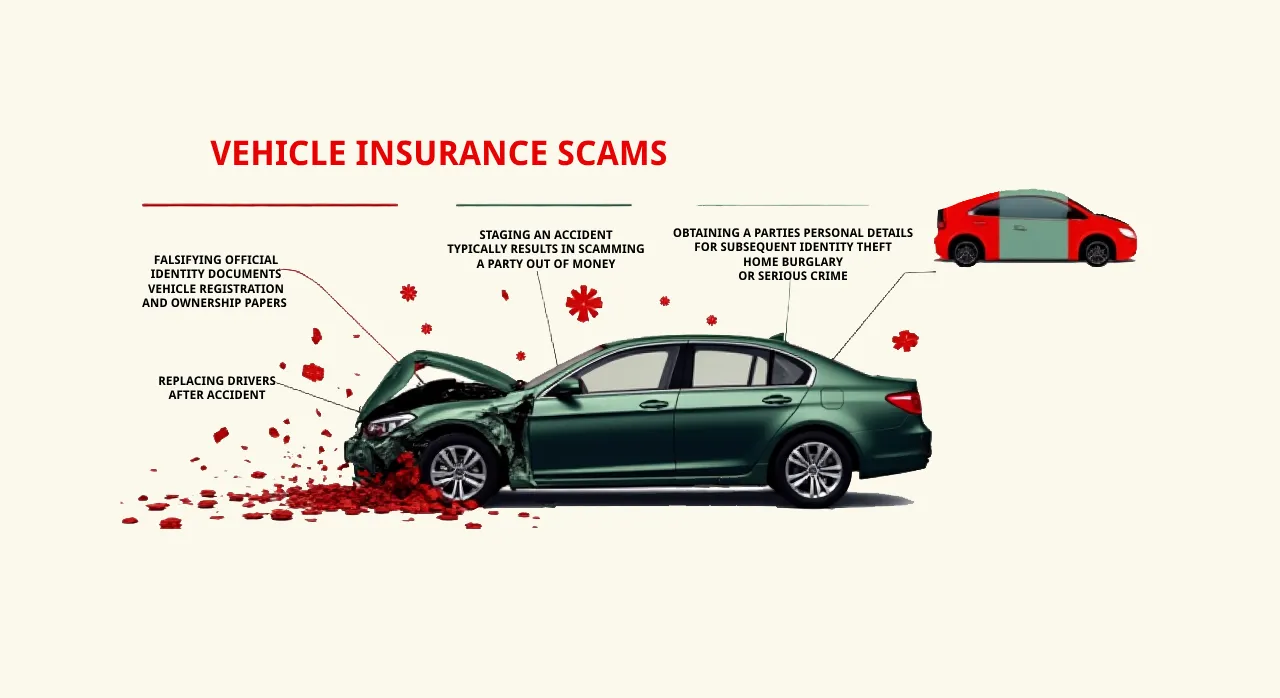In a disturbing new trend sweeping through Kuala Lumpur, scammers are staging car crashes to extort money from unsuspecting motorists. Reports of at least 12 victims have surfaced, with many coerced into paying hundreds of ringgit to avoid fictitious legal or insurance complications. Authorities and community leaders are now warning drivers, particularly women, to remain vigilant against these deceptive tactics.
A Calculated Deception
The scam typically involves a couple in their late 20s who deliberately orchestrate minor collisions with their targets, often at busy intersections or quiet residential areas. According to Datuk Seri Michael Chong, head of the MCA Public Services and Complaints Department, the perpetrators intimidate their victims into paying compensation on the spot, with demands often reaching as high as RM2,000 (US$425, based on exchange rates as of May 24, 2025). Chong revealed at a recent press conference that the total amount extorted from reported cases is estimated at RM10,000 (US$2,125).
One victim, a 59-year-old woman identified only as Yim, recounted her experience during an incident in April. While her sister-in-law was driving and attempting to make a turn at a T-junction, a sports utility vehicle (SUV) collided with their car. “Initially, the SUV driver demanded RM2,000 but after negotiating, we agreed to pay RM500 (US$106)” said Yim. She added that the couple discouraged her from filing a police report, claiming they were in a hurry to travel to Penang. To formalize the agreement, Yim insisted on a signed document with the couple’s details, only to later discover through social media checks that the information provided was fabricated.
Another motorist, 46-year-old Chow, encountered a similar situation while reversing her car in Bandar Bukit Puteri, Puchong. She was also asked to pay RM2,000 (US$425) but managed to negotiate the amount down to RM150 (US$32). “As I was chatting with a friend about the incident, I learned that my friend was also involved in a similar case involving the same car and plate number” said Chow. Suspecting foul play, she promptly lodged a police report.
Broader Impact on Victims
Beyond the immediate financial loss, victims face additional burdens. Chong highlighted that many have had to cover the cost of repairing their vehicles out of pocket while also losing their No Claim Discount (NCD) on vehicle insurance—a benefit that reduces premiums for drivers with no claims over a set period. This double penalty exacerbates the financial strain on those already shaken by the orchestrated accidents.
The targeting of women motorists has raised particular concern. Both Yim and Chow’s accounts suggest that the scammers may perceive female drivers as more vulnerable or less likely to challenge their demands. While there is no confirmed evidence to suggest gender-based targeting, Chong emphasized the need for all drivers, especially women, to exercise caution and report suspicious incidents immediately.
Calls for Investigation and Public Awareness
Chong has urged the Royal Malaysia Police to investigate these cases under Section 384 of the Penal Code, which addresses extortion. He stressed that swift action is necessary to curb this emerging scam before more motorists fall victim. “These conmen are exploiting people’s fear of legal repercussions or insurance complications” said Chong, urging the public to remain skeptical of on-the-spot payment demands following minor accidents.
Local authorities have echoed these warnings, advising drivers to document any accident thoroughly—taking photographs of the scene, exchanging verifiable contact information, and, most importantly, filing a police report regardless of the other party’s insistence on a private settlement. Community forums on social media platforms have also begun circulating descriptions of the suspected vehicle and license plate numbers, though police have yet to confirm any arrests or formal charges related to these incidents.
A Growing Threat on Malaysian Roads
This scam adds to the broader challenges of road safety in Malaysia, where urban areas like Kuala Lumpur already grapple with heavy traffic and frequent accidents. The deliberate nature of these staged crashes, however, introduces a new layer of distrust among motorists. For many, the fear of being targeted could discourage the mutual goodwill often extended after genuine accidents, such as offering assistance or negotiating fair resolutions without police involvement.
As reports of these incidents spread, questions linger about how widespread the scam might be beyond Kuala Lumpur. Could similar tactics emerge in other Malaysian cities like Penang or Johor Bahru, or even across borders in neighboring countries with dense urban traffic? While no evidence currently points to a larger network, the pattern of behavior—consistent demands for payment, fabricated identities, and intimidation—suggests a level of coordination that warrants closer scrutiny.
For now, the focus remains on raising awareness and encouraging vigilance. Motorists are advised to trust their instincts and prioritize official channels over roadside negotiations. As Yim’s and Chow’s stories illustrate, even a seemingly minor collision can carry hidden costs—both financial and emotional. With authorities stepping up their response, the hope is that these scammers will soon find the roads of Kuala Lumpur far less hospitable to their schemes.
















